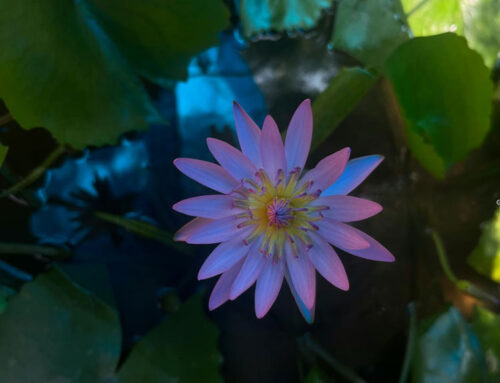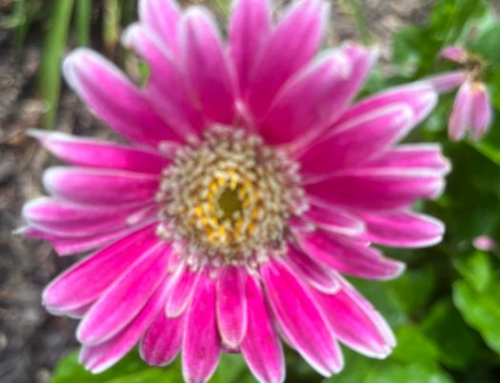Steps of the Healing From Abuse

I was recently a speaker on the “Enlightened You Summit” organized and led by Dr. Ruth Anderson. Ruth asked me to write up my “Steps of The Healing Process.” In my case, it was the healing journey from mental, physical, and sexual abuse. Your healing journey may be of a different nature. These steps will help with any healing process.
I am going to start from the beginning. If you feel you are farther along than the beginning, please pick up where you feel you are at this time and please email me if you’d like support at energiahealingarts@gmail.com.
Reclaiming your life, self -worth and self -love:
1. Acknowledgment: Practice greeting every uncomfortable feeling or emotion as a message asking to be heard and seen. This requires taking a break from busyness. It’s important to make time for this. If you hear or feel an inner tug to pay attention, and you don’t have time in that moment, you will need to tell the part of you that is speaking up that you will make time at such an such a time (be specific with your time). Sit down and tune in to him or her. Be specific and make the time to help.
Acknowledge the message that needs to speak. Say, “I hear you. I’m listening,” like you would talk to a young child. Acknowledge this pain and hurt with compassion and care. Don’t dismiss it, push it down, or try to get rid of it. It will come out in some way or form. Sometimes, I will even say to this hurt part that is speaking, “I’m sorry that happened and that is not OK. I will keep you safe now.” Morning is a good time to check in with these inner messages, even if it is for just a few minutes. A good question to ask at this time is, “What is the gift/silver lining/message in this uncomfortable feeling or thought?”
2. Acceptance:
It’s important to accept all the emotions related to what you’ve been through, yes, even the one most everyone cringes at—anger. Anger is a natural response to feeling violated. It is a valuable emotion that helps you set boundaries. When expressed mindfully, with the intent to protect and not to harm, it gives you the energy and firmness to set boundaries in situations where they were crossed and violated, such as an abusive experience. Anger says, “Hey, hear me. I was hurt. I am going to take care of myself and stand up for myself now that I am older and I can!”
Helpful tip: Sometimes I will say out loud, “I’m feeling angry.” I just note it and it helps me to move along. I try not to say, “I am angry,” because my practice is to understand that I am not my feelings. I have feelings, but they do not define me. I can choose how I relate to them. I can use their energy and information to give me insight and help me take action.
Accept that this journey of healing may be layered, like the layers of an onion. Practice accepting you, and your journey, free of comparison. How? In the moment, notice you are being hard on yourself, breathe, tune in, and feel the energy of your feet on the ground. Then, feel the energy in your heart area/chakra. Just feel. Sense your essence. Sense your unique perspective and value. Honor who you are and what you’ve been through.
3. Observation: Cultivate a practice of observation. Practice observing your thoughts and feelings without believing in, responding to, or identifying with them. It’s as if you are watching a film of your thoughts, feelings, and experiences. Use this technique, especially when you feel triggered. Pause. Breathe. Observe. If you find you are caught up in your feelings, thoughts. . .It’s OK. . .we all do it. Just reset. . .with self-compassion. Developing a daily meditation practice is a way I cultivated this skill of observing. If you’d like some guided meditations, send me an email through my website: www.energia-transformyourlife.com.
4. Building: Begin to build your confidence, self-esteem, and self-worth. Here are some ways I did this as a young person: I learned piano, guitar, singing, songwriting, gymnastics, painting. . . Pick one thing you like and grow your skill, competence, and confidence. Confidence in one thing tends to carry over into others. When you see yourself developing and creating a beautiful skill, you begin to build self-esteem, joy, and self-worth. The positive vibration in this activity begins to attract more experiences like it.
5. Question: Begin to question negativity in your own mind and in others you relate to. Ask, “What purpose is served by looking at things or myself in this negative way?” Then, choose which thoughts you focus on and which ones you let go.
6. Courage: Practice strengthening the courage to say “YES” to something different than you have in the past. For example, I practice saying “YES” to having kind friends, support, abundance, a gift, and new thoughts. Practice saying new affirming thoughts to yourself. For example, “I actually like the way I sound, look, think, care for others. . .”
7. Failing: When you feel like you are going backwards in your healing process, reset yourself with compassion. Try to avoid punishing yourself. It’s OK. Noticing what you are doing is a positive step. When you notice old thoughts, feelings, and behaviors, pause. These are just old habits, nothing more. Use this as a moment to reset and move forward.
8. Accept Support and Happiness: Strengthen your communication with your higher self, God, your faith, Angels, and all forms of support. Strengthen the knowledge of how important you are to the whole. You matter. Ask for what you want and need. Acknowledge receiving by saying, “Thank you.”
Personally, I am learning to be comfortable feeling happy. If you can learn to get used to pain and hurt, you can learn to get used to accepting joy, abundance, and the life you envision for you, your family, and those around you. It’s your choice and your responsibility to take care of you. If you are not experiencing life the way you’d like in any area, ask yourself, “Do I feel unworthy of what I desire?” “Do I feel guilty for desiring this experience?” Listen to your answer without judgement and as an observer. Notice what your answer is. If it is “No,” continue inquiring. . . Then ask yourself, “What is my block? What am I learning?” I also pray for help seeing what I am not seeing. This is a very helpful way to have blocks removed. Try not to have a way you think the answer should come, or you may not see it .
Welcome having what you need and desire.
9. Compassion and Forgiveness: Every person is different. We each have different personalities, needs, and coping strategies.
Everyone’s personality takes in the same information and processes it differently. So, it’s important to have compassion for your healing journey without comparing it to others and to have compassion for theirs without judging it by yours.
Ultimately, we need to cultivate compassion for ourselves and for the person or people who were abusive. That doesn’t mean you say, “It’s OK, I know you didn’t mean it.” It means, “I wish you a peaceful and joyful life, but this is not OK and I don’t allow people to treat me this way. You need to seek help for this behavior and I will not allow you to abuse me or anyone else in our home while you figure that out.”
One of the challenging areas early in the healing journey is forgiving yourself. When we are young and we have been abused, we learn dysfunctional ways of thinking about ourselves. We lose trust in people and doubt ourselves. We tend to think that what happened was our fault. In my case, I was told that what they did to me was my fault. They told me I had asked for it.
As I began to remember that I was sexually abused, which I had suppressed until I was about 24, I noticed habits such as feeling responsible for making men happy, for pleasing them and making them feel better. I was sometimes promiscuous and began to wonder why I was like that and why men of all ages seemed to know I was broken in that way and approach me. It’s like a part of my brain was on autopilot when it came to men. They, most likely, were also hurt in some way.
I also had a strong belief that my looks were what made me valuable. So, I put a lot of effort into keeping that up, because I wanted to be valued and loved.
It takes courage to acknowledge these things and to try to change how you think and feel. You just think that’s the way you are. But, I remember a moment when I was 24, when I began to remember what happened and decided I wanted things to change. I began a new relationship with a man (whom I later married) who was nothing like what I’d grown up with, and I began to take steps to change inside. I sought counseling, continued prayer for healing and began to meditate.
It wasn’t easy. Old habits die hard, especially ones that are so deeply ingrained with strong negative feelings. I failed and fell several times. At those moments, I wondered, “How am I ever going to forgive myself? I hate that I feel this way! I hate that I have these beliefs!”
It’s been a long road, but I have learned to treat myself the way I imagine God would treat me or see myself as my husband sees me—through the eyes of love.
After self-compassion and forgiveness, the next step is compassion and forgiveness for the person(s) who treated you badly. Harboring hate and anger is an understandable response. It’s important to acknowledge and accept these feelings first. However, if you want to be free, you’ve got to take the next step and forgive.
This can begin by seeing that the person who hurt you was unconscious and hurting themselves. If they weren’t, there is no way they could undertake those hurtful actions. Somewhere along the line of their lives, they were hurt and made to feel bad about themselves. When I consider this, I can let go of feeling only anger and hatred for them. I see them in a new light of compassion.
Forgiveness is a next step. When I forgive, I free myself from being tied to and defined by what happened to me. When I forgive those who hurt me, I put the past behind me and walk into a new future. I stop being defined by the pain of my past.
10. Meditation practice:
I have been meditating now for about 25 years. Meditation helped me get off antidepressants and see that I am separate from my thoughts and beliefs—and that they aren’t all true. This was a huge revelation to me—to observe my thoughts without thinking they are all true. I can choose the thoughts that are helpful and let go of the rest.
Many times, it was challenging to meditate because lots of uncomfortable feelings would surface. Part of meditating is letting them arise without giving them energy, without focusing on them, just acknowledging them and letting them go. Sometimes, I found myself crying, feeling angry, or sad. Over time, I learned to trust that feelings come and go and everything is OK. I am safe now. I can feel things without having them overwhelm me. Whenever these feelings come up, I acknowledge them, let them go, and return to my breath.
I’ve learned to see the breath as the gift of life, a gift from God. I’ve grown my trust in Divine Life and Love. God is Good, not a punisher, as I was brought up to believe. I am learning to trust God’s plan for me. Meditation has helped me to recognize and let go of limiting beliefs and embrace a new way of being, one of acceptance and inclusion.
If you haven’t meditated before, I would recommend starting with about 5-10 minutes, once or twice a day. First thing in the morning is a good time, because it helps you start the day with a calm, clear mind. After all these years, meditation is something I look forward to every morning.
I hope these steps are helpful to you in your own healing journey. If you have any questions or would like some support, you can reach me at www.energia-transformyourlife.com.
11. My quiet time with God, love, life, my heart, soul, spirit guides … However you want to say it is welcome….
I began a habit that I do everyday, no matter how busy or how important everything I need to do seems. I sit, listen, feel gratitude for this life, the people in it, the earth, nature… Cultivating that connection feels like nourishment and like heaven on earth.
If you’d like any help and support please reach out at energia-transformyourlife.com
You can do it. You can live the life you feel is possible in your heart. That feeling is not placed there by accident. I believe our deepest and purest desires are Gods/loves desires for us as well.
Monica Augustine bio: My career passion is to support clients to gain clear insight, release inner blocks, and heal, so they can take positive action to experience the life they desire. I gain information by asking questions, actively listening, and using my empathic, clairaudient, and clairvoyant skills. I then use Reiki to release and clear inner blocks and Life Coaching to support positive action steps. I have training as an Intuitive Reader and am certified as a Reiki Master Teacher and Life Coach.
In addition, I founded and directed Wildflower School of Voice in Boulder, CO, for 20 years before selling it at the end of 2014 to transition into my new work full-time.
On the personal side, I have lived in Colorado for 29 years, have been married to my husband Kevin for 24 years, and have two boys, Greg and Will. I love to be with my family, sing, exercise, and devote time to friends and my spiritual practice.
Website: energia-transformyourlife.com





